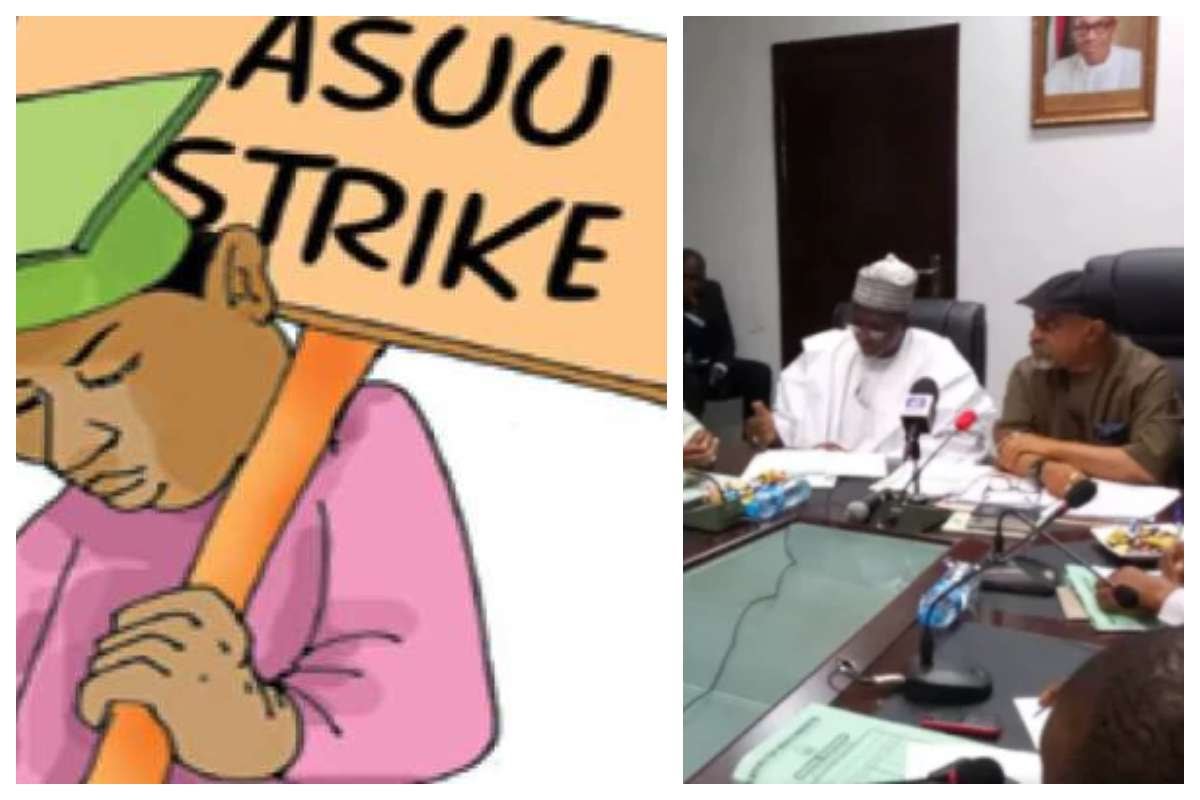But Senator Ngige at the meeting with the Federal Government Renegotiation Committee in his office, pleaded with the committee to ensure it concluded its assignment within six weeks as provided in the Memorandum of Action, MoA, with the unions.
He asked the re-negotiation team to ensure that it kept to the six weeks timeline for conclusion of their assignment.
He said the federal government was aware of the level of depreciation to which the lecturers earning had been subjected to due to rise in inflationary rate, adding that he had advised the leadership of ASUU to find a better way of pressurizing the Federal Ministry of Education and National Universities Commission, NUC, to hasten action on implementation of agreements reached with the government, rather than rushing to strike every time there was a disagreement.
Ngige said: “I am not Minister of Education, I cannot go to the Education Minister and dictate to him how to run his place. But I told ASUU that you should be bombarding them at the Federal Ministry of Education for this to be moved forward.
“There are many ways to do so. If you go to the Labour Act, there is something called picketing. You can picket. Strike is an ultimate thing. Picketing means that you can stay at the corridor, clapping or singing. Workers are permitted to do so.
“But I am tired that anytime there is a disagreement, it is strike. And the bosses in the Federal Ministry of Education don’t feel the strike. It is the children and some of us parents that have our children in public schools.”
Speaking on the state of conditions of service of lecturers and other university workers, the minister said he had commissioned studies on productivity vis-a-vis emoluments, adding that the result was that payments done ten years ago, when the dollar was strong, have now lost value with 100 per cent depreciation.
“Why won’t I support if ASUU and their unions now want a renegotiation of their conditions of service, which is the main thing in the proposal by previous committee,” he said.
Chairman of the 2009 FG and University-based union renegotiation Committee, Prof. Nimi Briggs, said his committee was consulting all the stakeholders, with a view to finding an amicable solution to the ASUU dispute.
Meanwhile, the leadership of the Nigeria Labour Congress, NLC, has scheduled to meet with the four university-based unions over the ongoing strike in universities.
NLC said it was worried that public universities in the country had been closed down as a result of the strike embarked upon by the Academic Staff Union of Universities, ASUU, Senior Staff Association of Nigerian Universities, SSANU, Non-Academic Staff Union of Allied Educational Institutions, NAAT, and the National Association of Academic Technologists, NAAT.
The four unions affiliated with the NLC, shut down universities over unresolved issues, including the difficulties they face with the Integrated Payroll and Personnel Information System, IPPIS, non-payment of the minimum wage arrears, revitalization funds, and non-review of the 2009 Agreement with the government.
After ASUU commenced strike in February, .SSANU and NASU, through the Joint Action Committee, JAC, in March, also embarked on a two-week warning strike, following alleged government failure to address the concerns they raised, including non-payment of minimum wage arrears after many promises made to them by the government.
NAAT also declared its warning strike in early March to press home its demands.
The NLC explained that the scheduled meeting with the four striking unions was to know their level of engagement with the federal government.
General Secretary of NLC, Comrade Emma Ugbaja told Vanguard yesterday that the meeting slated for 10 am at the Labour House today, was aimed at finding a way to resolve the face-off between the aggrieved unions and government in the interest of all stakeholders.
Comrade Ugbaja said that it was proper to hear from the unions first before taking any position, adding that the interest of labor was to ensure that the matter was sorted out.

